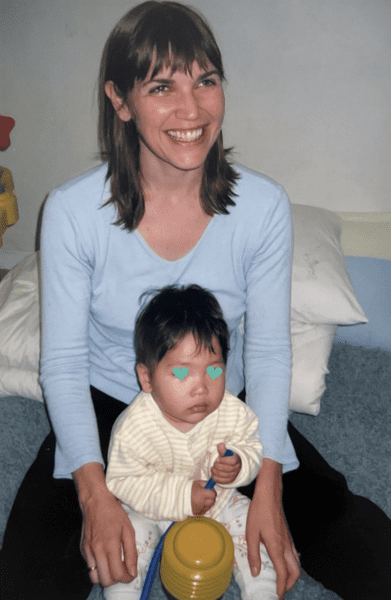Raising Multicultural Children in Korea
3 minute read

Becoming a new mom is a transformative experience filled with both joy and challenge. For me, the arrival of my baby coincided with a period of intense adjustment, as my Korean mother-in-law came to assist with the newborn while my now ex-husband was notably absent, leaving me to navigate this new world largely on my own.
Our son was born in Canada and when he was just a few weeks old, I flew back to Korea, alone. One week before we were to fly, his dad surprised me by saying that he would stay in Canada to work on his business while I went back to Korea to work and pay off the mounting debt for the business. That was 20 years ago and to this day, he has never really shown any interest in being a father. In other words, in one full swoop I became a single-mom from Canada raising a child in a foreign land.
I had only met my mother-in-law a few times before. And even though she was an angel for helping me, our cultural and generational differences were palpable. At the beginning, my mother-in-law spoke no English, and my grasp of Korean was rudimentary at best. This mismatch in communication only intensified the challenge, making me acutely aware of the gulf between our worlds.
Faced with this daunting situation, I made a conscious decision to remain true to myself rather than attempt to don the mantle of the ideal ‘Korean daughter-in-law.’ I knew that pretending to be someone I wasn’t would only lead to a shaky foundation. My ability to act the part of a culturally attuned daughter-in-law would inevitably falter, and I would end up disappointing everyone, including myself. Instead, I chose to set clear boundaries and embrace my own comfort zones. This meant occasionally declining requests or traditions that felt foreign or overwhelming. I recognized that it was better to face initial disappointment with honesty than to create unrealistic expectations and face greater disillusionment later.

This approach was not without its challenges. There were moments of discomfort and awkwardness, but by being upfront about my limitations, I was able to forge more genuine connections with my mother-in-law. Over time, my openness and authenticity became a bridge between us. Rather than being seen as a distant outsider trying to fit into a mold, I became someone who was earnest and respectful, even if not fully aligned with every cultural nuance. The initial friction gave way to a mutual understanding, and what started as a tense adjustment period transformed into a respectful and supportive relationship.
This experience taught me a valuable lesson: authenticity is far more sustainable than pretense. When immersed in a new cultural environment, whether it’s in Korea or any other country, the same principle applies. Trying too hard to fit in or adopt a persona that isn’t true to yourself can lead to a fragile and ultimately unsatisfying integration. The honeymoon phase of adjusting to a new culture is exhilarating but fleeting. Sustaining a façade becomes increasingly difficult as the novelty wears off, and the resulting sense of betrayal or confusion can damage relationships and hinder genuine connections. Thus, embracing your true self, while being open to learning and adapting, provides a more resilient foundation for meaningful interaction and long-term success.

I help expats thrive in Korean business culture
Related posts

Accused of Racism in Korea
3 minsAfter 20 years in Korea, being labeled 'racist' was a shocking experience. This post reflects on navigating cultural misunderstandings and the lessons learned about humility and inclusivity.

Reflect on the unexpected positives of the COVID-pandemic with these 8 reasons why the crisis may have had some silver linings.



